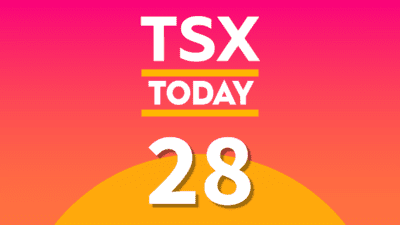In the spirit of today’s announcement that Wal-Mart plans to purchase $15 billion worth of its own stock, let’s kick the subject of share buybacks around a little more here.
The natural reaction to hearing this kind of announcement is “great, my company is going to take its shares outstanding from 100 to 90 and my ownership stake is going up”. Or something like that.
Not only can share buybacks shrink the ownership pool, they can also provide a lift to earnings per share by reducing the denominator in the equation. This can give a boost to a company’s stock price. In a previous post, we highlighted 5 Canadian companies that were using this bit of financial engineering to great effect.
As with today’s Wal-Mart announcement, buybacks are generally greeted with a friendly headline and typically exude a feel-good aura.
However, these friendly headlines and initial sense that one’s ownership stake is going to increase can sometimes be misleading.
You see, another reason that companies buy back their own stock is to offset the dilution that occurs when shares are issued as employee compensation. This is a bit of an in-one-door-and-out-the-other type scenario.
Rather than increasing one’s ownership stake, this practice merely prevents it from decreasing. Still better than the alternative, but not the feel-good result that is supposed to occur.
So which Canadian companies appear guilty of carrying out this practice? 5 culprits are tabled below.
| Company Name |
LTM Buyback |
LTM Issuance |
Net |
| TD Bank (TSX:TD) |
$3,330 |
$3,399 |
-$179 |
| Royal Bank (TSX:RY) |
$4,020 |
$4,057 |
-$37 |
| Talisman Energy (TSX:TLM) |
$66.1 |
$72.2 |
-$6.1 |
| Open Text (TSX:OTC) |
$11.1 |
$10.6 |
+$0.5 |
| Brookfield Asset Management (TSX:BAM.A) |
$244.1 |
$131.2 |
+$112.9 |
Source: Capital IQ
The banks have a bit of a reputation as being significant buyers of their own stock. The Toronto Star reported after TD’s recent 2nd quarter earnings that “the bank plans to buy back up to 12 million of its common shares over the coming year, or about 1.3% of the total”. Well guess what. Based on their history, they’re also going to issue 12 million shares in the form of employee compensation.
When we extend our time line to include the past 5 years for both TD and Royal, each bought back $11 billion and $20 billion worth of stock respectively. However, over this same period, they’ve issued $15 billion and $23 billion of stock to more than offset the impact that their significant buybacks have had.
The Foolish Bottom Line
This is just another example of why you should never take a headline, or a metric as it’s reported. The financial industry is filled with half-truths and spin and a skeptical eye can go a long ways to uncovering the real truth. This is also an example of why dividends are this Fool’s preferred way for a company to give back to its shareholders. Cash in one’s investment account after all is one number that doesn’t have a dual meaning.
If you too are a believer in dividends, you need to download the Motley Fool’s report “13 High-Yielding Stocks to Buy Today”. This report will have you rolling in dividend cheques in no time! To download this report at no charge, simply click here now.
The Motley Fool’s purpose is to help the world invest, better. Click here now for your free subscription to Take Stock, The Motley Fool’s free investing newsletter. Packed with stock ideas and investing advice, it is essential reading for anyone looking to build and grow their wealth in the years ahead.
Follow us on Twitter and Facebook for the latest in Foolish investing.
Fool contributor Iain Butler does not own any of the stocks mentioned above. The Motley Fool doesn’t own shares in any of the companies mentioned.








